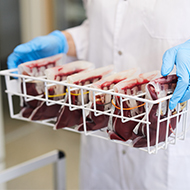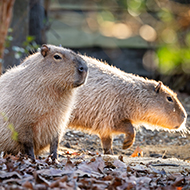Unusual discovery for Chinese soft-shell turtles Scientists in Singapore have found that Chinese soft-shell turtles pass waste through their mouths, adding to previous studies, which suggest they have highly-specialised mouth tissues.
The soft-shell turtles, which are native to much of East Asia, are found in swap water, and have unusual mouths that are thought to function in a similar way to fish gills.
The study observed the turtles submerging their heads in water for up to 100 minutes, despite the fact that they breathe by pulling air into their lungs, and were seen to be breathing during these submerged spells.
Tests made to the water found that the turtles excrete urea through their mouths rather than their kidneys.
Most vertebrates expel urea through urine via the kidneys, and turtles often pass urea out of the cloaca - the single orifice used for waste matter and reproduction.
Professor Ip Yeung Kwon, who took part in the study, said: "Throughout [the study] period, the urea excretion rate through the mouth was significantly greater… than that through the cloaca.
"These results indicate for the first time that [mouth tissue] processes and rhythmic [throat] movements were involved in urea excretion in [this species]."
The study, by biologists at the National University of Singapore, was published in the Journal of Experimental Biology.







